Items filtered by date: January 2024
Wound Debridement
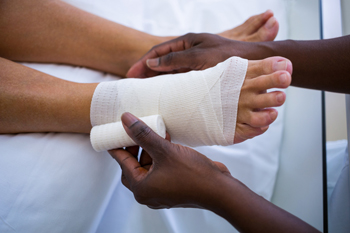
Debridement wound care is often necessary for the proper healing and prevention of complications in foot wounds. Debridement, whether with special dressings, maggots, or mechanical methods, aids in removing dead or infected tissue and facilitates healing. After this procedure, it is important to regularly change the dressing, as per your podiatrist’s instructions. Keeping the dressing dry by avoiding activities like swimming or hot tubs is vital. Always maintain cleanliness by washing your hands before and after touching the wound. Avoid applying pressure and use cushions or crutches, if necessary. While debridement carries potential risks like irritation, bleeding, or infection, its benefits often outweigh these. Pay attention to signs of infection, such as increasing pain, redness, swelling, or fever. If you have foot wounds or have had a debridement procedure and healing is slower than expected or shows signs of infection, it is strongly suggested that you schedule an appointment with a podiatrist for care.
Wound care is an important part in dealing with diabetes. If you have diabetes and a foot wound or would like more information about wound care for diabetics, consult with one of our podiatrists from The Sun Healthcare & Surgery Group. Our doctors will assess your condition and provide you with quality foot and ankle treatment.
What Is Wound Care?
Wound care is the practice of taking proper care of a wound. This can range from the smallest to the largest of wounds. While everyone can benefit from proper wound care, it is much more important for diabetics. Diabetics often suffer from poor blood circulation which causes wounds to heal much slower than they would in a non-diabetic.
What Is the Importance of Wound Care?
While it may not seem apparent with small ulcers on the foot, for diabetics, any size ulcer can become infected. Diabetics often also suffer from neuropathy, or nerve loss. This means they might not even feel when they have an ulcer on their foot. If the wound becomes severely infected, amputation may be necessary. Therefore, it is of the upmost importance to properly care for any and all foot wounds.
How to Care for Wounds
The best way to care for foot wounds is to prevent them. For diabetics, this means daily inspections of the feet for any signs of abnormalities or ulcers. It is also recommended to see a podiatrist several times a year for a foot inspection. If you do have an ulcer, run the wound under water to clear dirt from the wound; then apply antibiotic ointment to the wound and cover with a bandage. Bandages should be changed daily and keeping pressure off the wound is smart. It is advised to see a podiatrist, who can keep an eye on it.
If you have any questions, please feel free to contact our offices located in Antioch, and Martinez, CA . We offer the newest diagnostic and treatment technologies for all your foot care needs.
Do Your Child's Feet Hurt?
How Aging Can Affect Your Feet
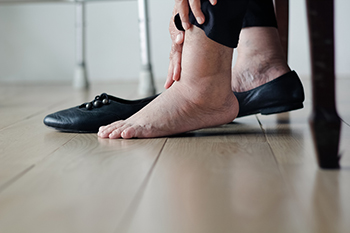
Aging gracefully is a journey that encompasses various changes throughout the body, and the feet are no exception. The intricate network of bones, muscles, and joints in the foot makes it particularly susceptible to the effects of aging. Certain conditions may arise, including plantar fasciitis, flat feet, and osteoarthritis. Plantar fasciitis involves inflammation of the ligament, called the plantar fascia, on the bottom of the foot. This condition often results from participating in high-impact exercises or wearing ill-fitting shoes. The telltale sign is sharp heel pain, especially pronounced in the morning. Flat feet, a consequence of aging and genetic predisposition, can lead to tired feet, painful arches, and swelling on the inner sides. This condition occurs when the supporting tendons and ligaments lose elasticity, a common side effect of aging, and causes the arches to weaken. Osteoarthritis, a prevalent concern for adults over 65, can affect the feet due to the intricate structure of bones and joints. While age increases the risk, repeated ankle sprains may also contribute to arthritis. If you are experiencing any of these foot problems, it is suggested that you schedule an appointment with a podiatrist.
Proper foot care is something many older adults forget to consider. If you have any concerns about your feet and ankles, contact one of our podiatrists from The Sun Healthcare & Surgery Group. Our doctors can provide the care you need to keep you pain-free and on your feet.
The Elderly and Their Feet
As we age we start to notice many changes in our body, but the elder population may not notice them right away. Medical conditions may prevent the elderly to take notice of their foot health right away. Poor vision is a lead contributor to not taking action for the elderly.
Common Conditions
- Neuropathy – can reduce feeling in the feet and can hide many life-threatening medical conditions.
- Reduced flexibility – prevents the ability of proper toenail trimming, and foot cleaning. If left untreated, it may lead to further medical issues.
- Foot sores – amongst the older population can be serious before they are discovered. Some of the problematic conditions they may face are:
- Gouging toenails affecting nearby toe
- Shoes that don’t fit properly
- Pressure sores
- Loss of circulation in legs & feet
- Edema & swelling of feet and ankles
Susceptible Infections
Diabetes and poor circulation can cause general loss of sensitivity over the years, turning a simple cut into a serious issue.
If you have any questions please feel free to contact our offices located in Antioch, and Martinez, CA . We offer the newest diagnostic and treatment technologies for all your foot and ankle needs.
How to Choose Shoes for Distance Running
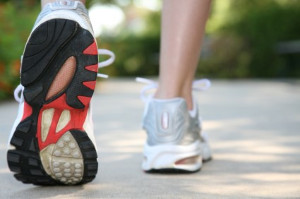
Embarking on the journey of distance running necessitates a discerning choice in footwear, an essential companion for every stride. Wearing the right distance running shoes is one of the ways to avoid injuries. Designed with meticulous precision, distance running shoes are crafted to endure the relentless rhythm of long-haul runs. These shoes seamlessly blend support and cushioning, striking an equilibrium that cradles the foot through each mile. The robust yet lightweight construction becomes a symbiotic extension of the runner, mitigating impact and maximizing efficiency. Breathable materials envelop the foot, ensuring comfort and ventilation. The soles, engineered for durability, provide a reliable grip on the terrain beneath, enhancing stability and confidence. If you require additional information about the right type of shoe for your running needs, it is suggested that you consult a podiatrist.
You should always make sure your running shoes fit properly in order to avoid injury. For more information, contact one of our podiatrists from The Sun Healthcare & Surgery Group. Our doctors can provide the care you need to keep you pain-free and on your feet.
Choosing the Right Running Shoe for Your Foot Type
Improper shoe sizing can cause a myriad of problems for your feet. Shoes that don’t fit you properly can lead to muscular imbalances in your body, which can result in foot, knee, and hip injuries.
Tips for Finding the Right Running Shoe
- Make sure you have a thumb’s width of wiggle room between the end of your longest toe and the front of the shoe.
- There should be little to no slipping at the heel
- Don’t assume your size in one shoe brand will be your size in another
- Do not lace up your shoes too tightly
- Walk around in the store with your new shoes before you buy them
If you have any questions please feel free to contact our our offices located in Antioch, and Martinez, CA . We offer the newest diagnostic and treatment technologies for all your foot and ankle needs.
Flooring and Your Feet
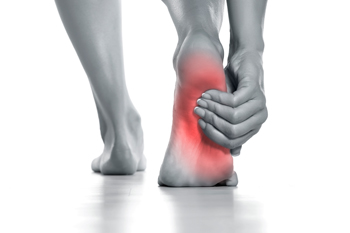
Many people have experienced foot pain from standing all day, either at work or at home. As it turns out, the floors installed around your house may be making the problem worse. Whether you are young or old, aches and pains can easily come from constantly being on your feet so any efforts made to decrease the discomfort can make all the difference in improving your physical and emotional well-being. These efforts begin with making your home as comfortable as possible, as the type of flooring you install can greatly impact your feet as you continue to go about your daily routines. Laminate, linoleum, vinyl, and carpet are just a few examples of floors offering physical benefits to homeowners who are all too familiar with the effects of minor and moderate foot pain. Selecting new floors for your home may seem challenging since each type comes with its own set of advantages and disadvantages. But doing so may help to improve existing foot pain. If you are considering changing the flooring in your home for relief from foot pain, it is suggested that you schedule an appointment with a podiatrist for specialized recommendations that would best suit your needs.
Foot Pain
Foot pain can be extremely painful and debilitating. If you have a foot pain, consult with one of our podiatrists from The Sun Healthcare & Surgery Group. Our doctors will assess your condition and provide you with quality foot and ankle treatment.
Causes
Foot pain is a very broad condition that could be caused by one or more ailments. The most common include:
- Bunions
- Hammertoes
- Plantar Fasciitis
- Bone Spurs
- Corns
- Tarsal Tunnel Syndrome
- Ingrown Toenails
- Arthritis (such as Gout, Rheumatoid, and Osteoarthritis)
- Flat Feet
- Injury (from stress fractures, broken toe, foot, ankle, Achilles tendon ruptures, and sprains)
- And more
Diagnosis
To figure out the cause of foot pain, podiatrists utilize several different methods. This can range from simple visual inspections and sensation tests to X-rays and MRI scans. Prior medical history, family medical history, and any recent physical traumatic events will all be taken into consideration for a proper diagnosis.
Treatment
Treatment depends upon the cause of the foot pain. Whether it is resting, staying off the foot, or having surgery; podiatrists have a number of treatment options available for foot pain.
If you have any questions, please feel free to contact our offices located in Antioch, and Martinez, CA . We offer the newest diagnostic and treatment technologies for all your foot care needs.
Definition and Symptoms of an Achilles Tendon Injury
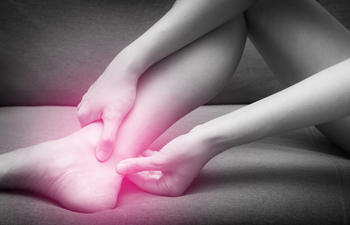
The Achilles tendon, a strong band of tissue connecting the calf muscles to the heel bone, plays a pivotal role in facilitating movement. An Achilles tendon injury refers to the damage or inflammation that occurs in this critical structure, impacting the ability to walk, run, or perform various physical activities. Typically, injuries to the Achilles tendon manifest as pain, swelling, and stiffness, often concentrated near the back of the heel. Individuals may experience difficulty pointing their toes or pushing off the ground. The discomfort can range from mild to severe, and in some cases, a noticeable thickening of the tendon may be observed. Achilles tendon injuries are frequently associated with overuse, sudden increases in physical activity, or inadequate warm-up routines. If you have endured an Achilles tendon injury, it is suggested that you confer with a podiatrist who can guide you toward the correct treatment method.
Achilles tendon injuries need immediate attention to avoid future complications. If you have any concerns, contact one of our podiatrists of The Sun Healthcare & Surgery Group. Our doctors can provide the care you need to keep you pain-free and on your feet.
What Is the Achilles Tendon?
The Achilles tendon is a tendon that connects the lower leg muscles and calf to the heel of the foot. It is the strongest tendon in the human body and is essential for making movement possible. Because this tendon is such an integral part of the body, any injuries to it can create immense difficulties and should immediately be presented to a doctor.
What Are the Symptoms of an Achilles Tendon Injury?
There are various types of injuries that can affect the Achilles tendon. The two most common injuries are Achilles tendinitis and ruptures of the tendon.
Achilles Tendinitis Symptoms
- Inflammation
- Dull to severe pain
- Increased blood flow to the tendon
- Thickening of the tendon
Rupture Symptoms
- Extreme pain and swelling in the foot
- Total immobility
Treatment and Prevention
Achilles tendon injuries are diagnosed by a thorough physical evaluation, which can include an MRI. Treatment involves rest, physical therapy, and in some cases, surgery. However, various preventative measures can be taken to avoid these injuries, such as:
- Thorough stretching of the tendon before and after exercise
- Strengthening exercises like calf raises, squats, leg curls, leg extensions, leg raises, lunges, and leg presses
If you have any questions please feel free to contact our offices located in Antioch, and Martinez, CA . We offer the newest diagnostic tools and technology to treat your foot and ankle needs.




